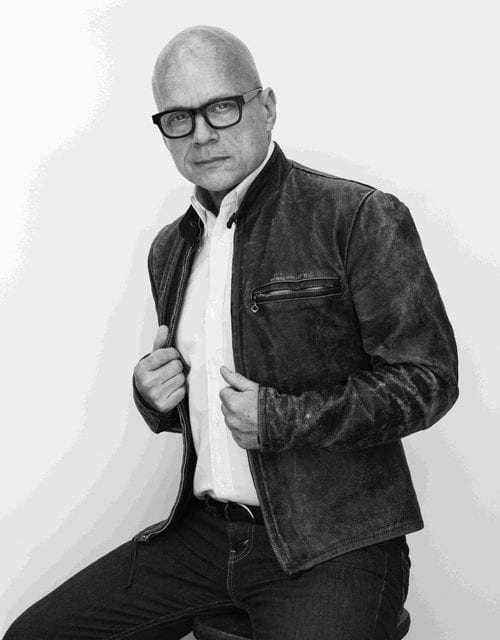2 powerful gay memoirs are unexpected page-turners
I Left it On the Mountain by Kevin Sessums (St. Martin’s Press 2015) $26; 273 pp.
On the morning of his 53rd birthday, Kevin Sessums woke up in a funk. He was scheduled to attend an Oscar party that evening with Courtney Love, but was preoccupied with something else: He’d signed up to walk the Camino de Santiago de Compostela in Spain, a pilgrimage of 500-plus miles.
Sessums wasn’t sure what he hoped to gain by walking the camino. He’d been told that the trek was spiritual, one “that pilgrims have walked for over two thousand years.” He’d been told that it would change him. Change was what he realized he needed.
As a child growing up in the South, Sessums was a “sissy boy” (Mississippi Sissy was his previous memoir) and he knew that he’d disappointed his father. Efforts to align with Dad betrayed his mother in ways that hurt her. But because both his parents died when Sessums was 9, he couldn’t ask their forgiveness.
Molested at 13, now HIV-positive and feeling abandoned as an adult, Sessums had been bingeing on drugs and sex for months when a friend suggested the Camino. The journey beckoned … but not without questions. “How do I fully combine the spiritual with the carnal?” he mused.
Weeks later, the answer arrived as he chose the more difficult path of the camino, up hills and through mud, fighting blisters and exhaustion but still noticing men and miracles. But that’s not the pinnacle of this powerful memoir — not by a long shot.
Sessums is a first-rate memoirist. He opens his heart and soul and lets you see everything that’s there: warm childhood memories, recollections of time spent with “heightened acquaintances,” love of (and frustration with) family, painful years of grief, loss and fear. His unfiltered stories, and especially the diary part of his camino journey — the passages about passages, if you will — both underscore his talent. (He does bend toward frequent name-dropping and pop-culture-fashion references, which can be tiring.) He also doesn’t shy from explicit, brutal sex.
Despite some flaws (that really aren’t flaws), I couldn’t put this book aside. It’s beautiful, it’s ugly, and if you skip reading it, you may never forgive yourself.
A List of Things That Didn’t Kill Me by Jason Schmidt (FSG 2015) $19; 432 pp.
 Killing his father would have been simple. Jason Schmidt knew he could smother his dad or overdose him and nobody would ever suspect. His father had been sick awhile anyhow and if he died, nobody would look twice, although Schmidt sensed he’d regret it. He didn’t need any more regrets in his life.
Killing his father would have been simple. Jason Schmidt knew he could smother his dad or overdose him and nobody would ever suspect. His father had been sick awhile anyhow and if he died, nobody would look twice, although Schmidt sensed he’d regret it. He didn’t need any more regrets in his life.
Born in the early ’70s, Schmidt remembers being a self-sufficient child: his earliest memory was leaving his mother’s house (at age 3) to ride a mile on his tricycle to his father’s place. That was just before his parents battled, his mother left for good, his father “got busted,” and Schmidt was sent to Southern California to temporarily live with his grandparents, who shipped him to Oregon when his father got out of jail. There, Schmidt and his dad lived in a series of “leftover” houses with a variety of “flower children, baby boomers” and hippies who taught Schmidt about sex, drugs and avoiding outsiders.
When he was 7, he and his father relocated to Seattle, where they moved in with his dad’s boyfriend. Three years later, another boyfriend got sick with a “weird fever” and then Schmidt’s father “came down with the same bug.” Schmidt pretended to cry when the diagnosis of AIDS was confirmed.
By the beginning of his senior year, Schmidt had caught up with his peers in school. He had a girlfriend, an understanding of welfare fraud, a high IQ, anger issues, a dying father, no stability, no money, no plan for the future. He was 16, barely holding things together, and couldn’t think of what would happen when he graduated.
A List of Things That Didn’t Kill Me is a large book, and not just the page count: Beginning with his earliest memory and moving forward to young adulthood, Schmidt shares a powerful, emotional coming-of-age tale of an unstable childhood, of the beginning of AIDS and of people purposely living on the edge of society with little to nothing, all told in a voice dripping with sarcasm, irony and anger.
That voice. That’s what hooked me. I laughed. I got teary. I loved it. Though this book is meant for teens, it’s best-suited for readers 16 and up. If you can handle that, then this is one you’ll be glad you didn’t miss.
This article appeared in the Dallas Voice print edition March 13, 2015.
















